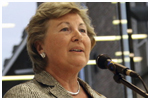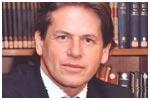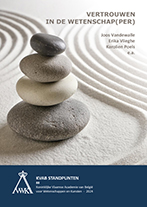Académie Royale des Sciences, des Lettres et des Beaux-Arts de Belgique (ARB)
Palace of the Academies – Rue Ducale 1 / 1000 Brussels Belgium
T. +32 2 550 22 12
Royal Flemish Academy of Belgium for Science and the Arts
Palace of the Academies – Rue Ducale 1 / 1000 Brussels Belgium
T. +32 2 550 23 23
The Academy’s mission is to promote research and encourage scientific and artistic endeavours that require its material or moral support.
It expresses, at the request of the public authorities or on its own initiative, any opinions that it considers likely to serve the interests of the Sciences, the Humanities, the Arts, or society in general.
The Academy is divided into Classes, the “Technology and Society Class”, which deals with the various forms of engineering derived from the sciences and their impact on society, being one of its four Classes.
The Academy’s representatives to Euro-CASE belong to the latter class.
Identity

Godelieve LAUREYS
President of KVAB

François DE CALLATAŸ
President of ARB
Founding date: 1772
Mission statement
The Academy’s mission is to promote research and encourage scientific and artistic endeavours that require its material or moral support.
Its “Technology and Society” Class assesses technological innovations and their social, economic, environmental, and cultural impact on society, as well as the ethical implications associated with these technologies.
Its main missions, based on an interdisciplinary approach, are to offer independent advice on important issues relating to research and engineering and on the choice of strategies to be adopted to meet the needs and aspirations of society; to inform and make recommendations to the public authorities on support for research and innovation and on training; to promote public awareness of the importance of science and technology and their impact on society.
Committees / Main working groups
The Academy (ARB) is divided into four Classes:
– The Class of Sciences
– The Class of Letters and Moral and Political Sciences
– The Class of Arts
– The Class of Technology and Society, which deals with the various forms of engineering derived from the sciences and their impact on society.
PRINCIPAL OBJECTIVES 2025 AND KEY REALISATIONS 2024
Academy (ARB)
The Academy’s 2025 objectives are:
– Create the Royal Academy Digital Lab (RoAD Lab): a laboratory for the digitization of the Academy’s archives.
– Continue the Wiki-BN project: an interactive project for the National Biography.
– Develop podcasts of the conferences of the Collège Belgique.
– Improve the dissemination of the Academy’s publications and implement a dynamic communication policy on the Academy’s activities.
– Develop international relations (Academy presence in London, implementation of the agreement with the “Institut grand-ducal du Luxembourg”, etc.).
The main generic achievements of the Academy (ARB) in 2024 are:
– The increase of the volume and frequency of its activities. One of the major achievements is the significant increase of its audience through the participation in the ARB activities.
Specific ARB achievements in 2024 are:
– The development of international relations (collaboration with the « Académie des Sciences morales et politiques de l’Institut de France »; ARB presence in Rome; closer ties with the “Institut grand-ducal du Luxembourg » …).
– The reorganization of the archives of the ARB.
– The publication of 17 volumes by the ARB’s Publishing House.
Technology and Society
Objectives for 2025:
– Support technological and societal transitions: Explore challenges such as food, energy, artificial intelligence, and corporate social responsibility through informed and well-documented debates, guided by interdisciplinary perspectives.
– Promote wider dissemination of critical thinking: Make some of the discussions and reflections accessible to a diverse audience, notably through documentation and/or short courses on topics like critical thinking in the face of technological issues.
– Strengthen young people’s interest in science and technology: We will rely on documents such as the Draghi report, UNESCO’s recommendations on science education, and European initiatives like Horizon Europe, which highlight the importance of fostering an interest in science and technology among young people. The aim is to inspire future generations through programs like STEM ambassadors and to nurture the innovative ecosystems within our community.
Achievements of 2024:
– The Academy’s working group on Artificial Intelligence has led to several outcomes in connection with the TRAIL and FARI initiatives and the publication of the book Face aux défis de l’intelligence artificielle générative by Benoît Frydman, Benoît Macq, Bruno Colmant, Catheline Périer-D’Ieteren, David Restrepo Amariles, Hugues Bersini.
ARB publications, 2024, « Académie en poche » series, ISSN 2506-6641.
– The work also addressed major questions related to energy challenges, with a joint session with ARSOM on issues related to materials for the energy transition.
– A publication by the Academy on the side-lines of this work should be mentioned: Nucléaire contre renouvelables: pour en finir avec la guerre des religions by Michel Allé, Brussels.
ARB publications, 2024, « Académie en poche » series, ISSN 2506-6641
– During its activities, the Technology and Society Class also tackled issues related to science and technology in connection with security and defence, as well as the legal aspects of corporate responsibility.
NEXT ACADEMY ANNUAL EVENT
Academy (ARB)
Numerous conferences and study days on various topics (Medicine and Artificial Intelligence; demographic challenges; etc.)
Technology and Society
On September 6, 2025, a joint public session of the Technology and Society Class with the Royal Academy of Medicine will focus on « Artificial Intelligence at the Heart of Healthcare, » featuring renowned international speakers (Oxford, Paris, etc.).
NUMBER OF FELLOWS AND ASSOCIATE FELLOWS
The Academy counts approximatively 200 fellows and 200 associate fellows, roughly 50 members per class and per category.
The percentage of ladies amongst its fellows and associate members steadily increases.
The recently established Collegium (“Young Academy”) counts 40 members,10 of each Class. 50% of the members are ladies.
Percentage of women among Fellows and Associate Fellows
Currently the Technology and Society Class counts 54 fellows and 48 associate fellows.
16 ladies are fellows (30 %); 15 ladies are associate fellows (31 %).
The numbers do not include the honorary members and the emeriti.
Number of staff
The Academy counts 35 staff members.
The class of technology counts 1 staff member.
The Class is supported by the other Academy Staff as well, in “Cross-Class” domains.
Financing sources
Government (Fédération Wallonie-Bruxelles)
Own assets (e. g. donations)
Bilateral relations with other member academies of Euro-CASE
NATF, amongst others.
The academy is member of
ALLEA
CAETS
EASAC
ESAF
International Human Rights Network of Academies and Scholarly Societies
IAP
ISC
SAPEA
UAI (ARB’s Permanent Secretary is its General Secretary)
Highlights 2023
KVAB
COLLÈGE BELGIQUE
The “Collège Belgique” continued its activities as the educational and knowledge dissemination institution of the Académie royale de Belgique (ARB). The College offers a programme of more than a hundred university-level lectures, free of charge, designed to be accessible to a wide audience. These courses are taught by academicians, university professors, researchers, writers, and experts recognized for their knowledge in the respective fields. The «Classe Technologie et Société» of the ARB also contributes to the programme.
COLLEGIUM
The ARB continued to welcome in 2023 members of its newly created body, a “Young Academy” named the “Collegium”, with the objective to gather young scholars (less than 40 years of age) and their expertise within the ARB.
ARB/KVAB POSITION PAPER
The first joint position paper of Belgium’s two general academies, KVAB and ARB, calling for an accelerated digital transformation in Belgium, was published in 2023.
ARB
THINKERS’ PROGRAMME ‘AI AS AN AGENT OF CHANGE’
This programme focuses on the most recent developments in artificial intelligence and explores their implications for our understanding of humanity, particularly regarding autonomy, self-determination, and the need for a ‘digital humanism’. In collaboration with Helga Nowotny, the aim is to examine, on the basis of a broad reflection, proposals for supplementary policies that are developed internationally to stimulate the productive integration of AI in society.
POVERTY AND/IN EDUCATION
As part of the 2023 Thinkers’ Cycle on Poverty and/in Education, led by Mieke Van Houtte (UGent) and Mathijs Lamberigts (KU Leuven), experts explored educational inequality from financial, social, and cultural perspectives. International experts Luann Good Gingrich (York University) and Diane Reay (Cambridge University) brought their expertise to Flanders to reflect and debate together with the Steering Committee and numerous experts in order to make recommendations for a future-oriented Flemish policy. At the closing symposium on December 12, 2023, they presented findings and policy suggestions to address these ongoing challenges.





